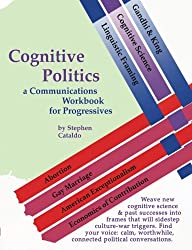Samantha Bee called Ivanka Trump a 'Feckless Cunt' for her role in enabling and covering for atrocious Trump administration policies such as separating parents and children, an insult which blew up, and became the story:
I would do anything to help those kids;
I hate that this distracted from them,
so to them, I am also sorry.
For those who believe in the communication approaches made famous first by Gandhi and King, Bee's failure to help people focus on the issues she cares about is a clear object lesson:
1) When the techniques from the world of ahimsa, nonviolent protest or radical civility are not used, when we name-call even 10% as rudely as our opponents, our incivility buffers listeners from the wrongs being committed. This is how we lose the political fight against Trump.
2) Calls for radical civility are in danger of being used by be-nice civility. When the techniques from the world of ahimsa, nonviolent protest or radical civility — techniques that all involve training and work to be be better communicators — are associated with be-nice, everything-is-ok civility (and perhaps even tone-policing our allies), it means we won't be able to recruit people in our own movements, won't be able to get people to come to the trainings and try out these techniques. This is how we lose the chance to create a movement that can win the political fight.
Civility is often about being nice to the person you are talking with at the expense of whoever is getting hurt; radical civility has to be about facing what is going on in the world — while keeping ourselves, our egos and our communication techniques from becoming a distraction or buffer to the real story. In this sense, radical civility and be-nice civility are actually opposites.
I do believe that, where there is only a choice between cowardice and violence, I would advise violence. I would rather have India resort to arms in order to defend her honour than that she should, in a cowardly manner, become or remain a helpless witness to her own dishonour. But I believe that nonviolence is infinitely superior to violence, forgiveness is more manly than punishment. — Mahatma Gandhi
Radical civility needs to be able to talk about horrible things. This is the tradition it comes from: there was not equivalence between British colonizers and Indians struggling for independence, nor was their equivalence between those who wanted Civil Rights and those opposed.
Do you want to see America go through a movement, so when the next generation looks back, the list of victories of nonviolent movements talks about Gandhi, King, Mandela, and the wide awakening that happened after Trump was elected?
I think if we want that to be the case, we have to break the associations between radical civility and be-nice civility, and learn and then teach how to express anger at the wrongs being committed in a way that we no longer are the distraction.

So far, I don't think I've seen a radical civility movement that makes this clear: in the civility groups I've joined, you get in trouble for judging opponents as responsible for their actions, but not in trouble for judging them as not responsible their actions — rather than stick to avoiding judgment and sticking to communication and mobilization.
The Democrats and also the Left have been failing in recent years partly because we aren't good at expressing anger: being willing to face how bad certain actions are without dipping into name-calling and techniques known to backfire, known to make the debate itself into a distraction. The main exception I can think of is Michelle Obama, who does not hold back on how bad certain political choices are, but simultaneously doesn't insult and does invite everyone to get on the side of decency or justice.
Bee is describing how incivility becomes a buffer between listeners and what the Trump administration is doing. There are things worth being angry about, and figuring out techniques for communication that don't tone-police that anger downwards, but instead help the real issues be heard. Suggestions: "No Stale Anger" and the following sections, page 50 of Cognitive Politics, or join Social Media Responses for Respect and Tolerance.
